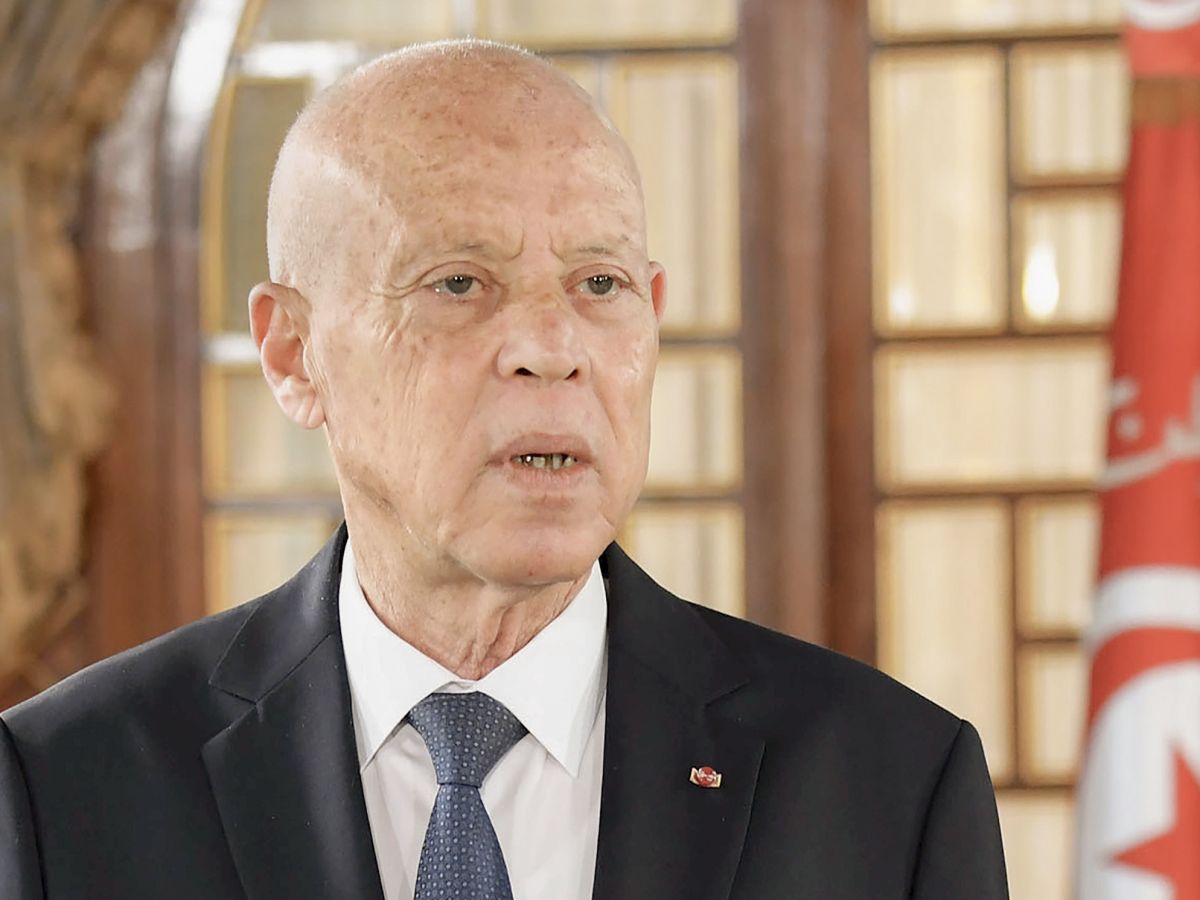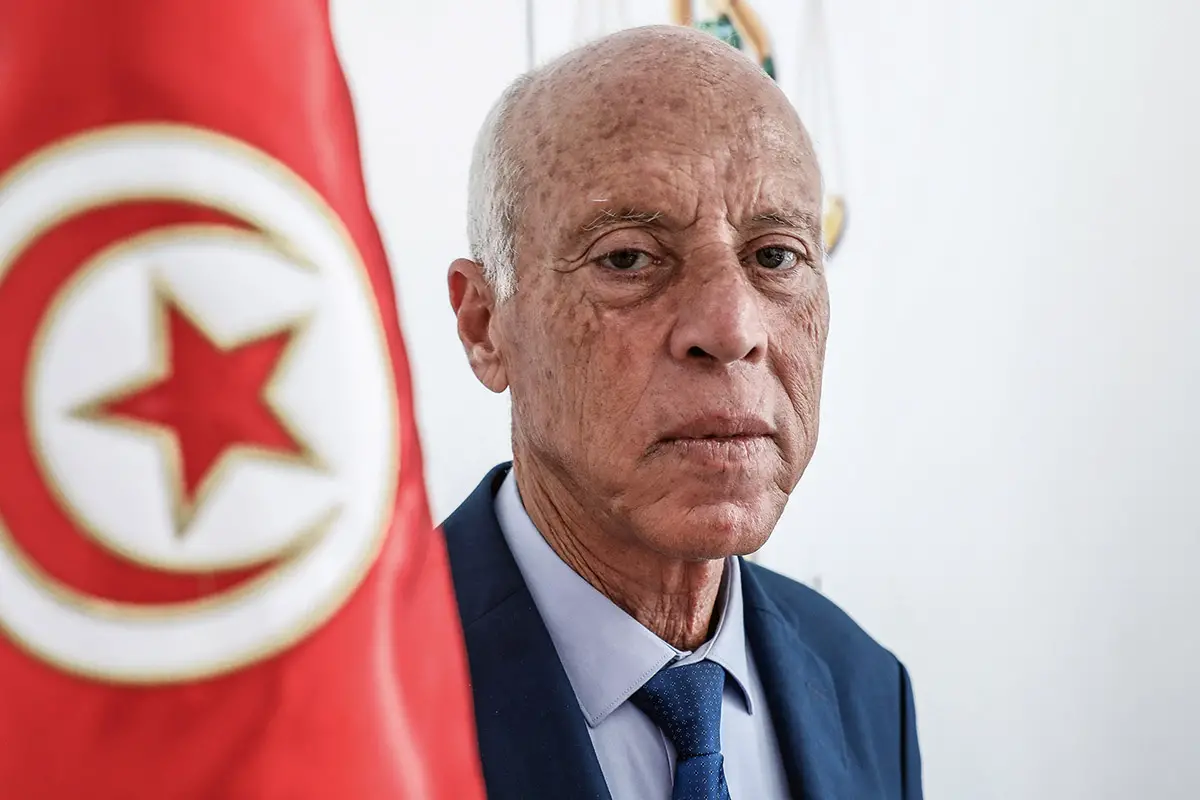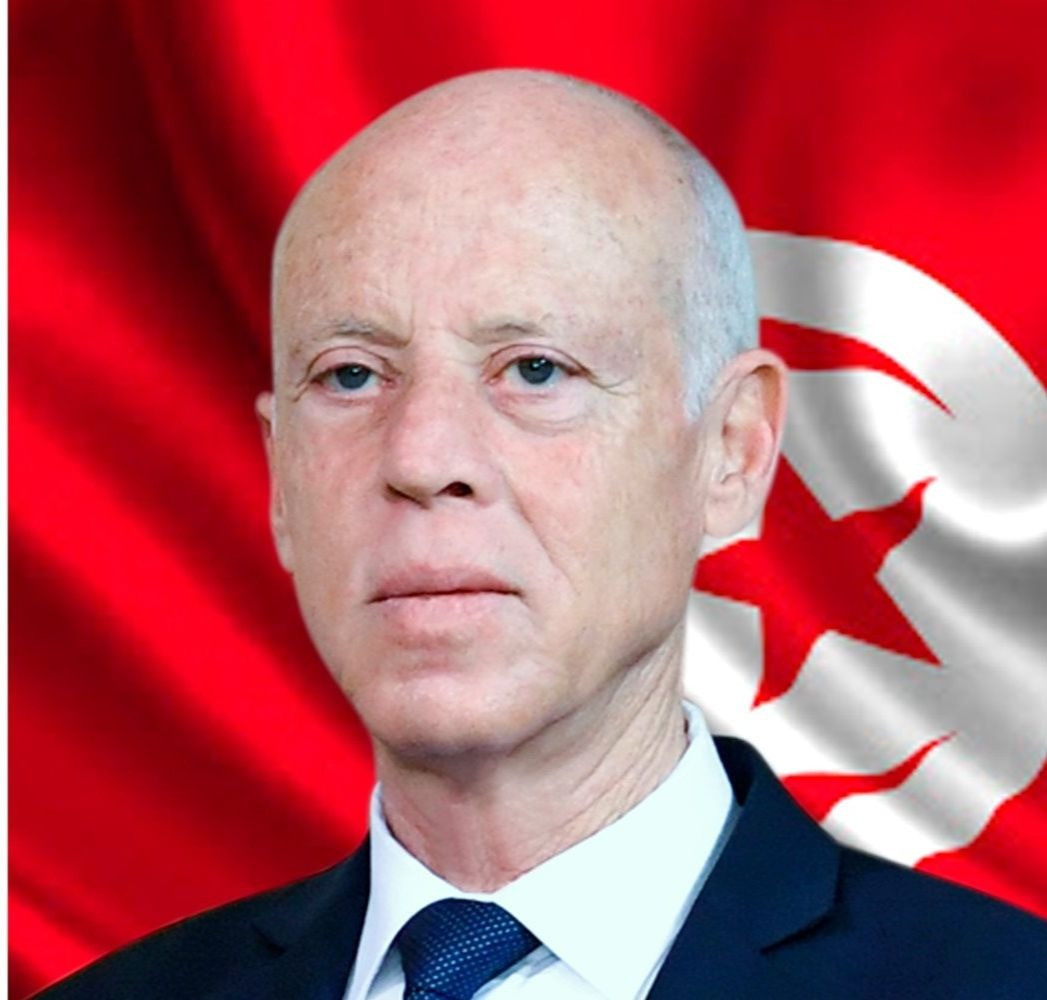The recent presidential election in Tunisia, culminating in the landslide re-election of President Kais Saied, has reignited a crucial debate over the security and stability of the North African region. While elections are a hallmark of democratic governance, Tunisia’s latest electoral process has raised significant concerns about the future of the country’s fragile democracy. International observers, rights groups, and political dissidents have voiced alarm over the erosion of fundamental democratic principles under Saied’s administration, drawing parallels to the authoritarian tendencies of neighboring countries. With Saied’s consolidation of power and the growing discontent among opposition parties and civil society, the security impact of this political shift in Tunisia extends beyond its borders, threatening regional stability and affecting broader geopolitical dynamics.
Tunisia’s Democratic Experiment and the Rise of Kais Saied
Tunisia, once hailed as the success story of the Arab Spring, has seen its democratic aspirations unravel in recent years. The revolution in 2011 that ousted long-time dictator Zine El Abidine Ben Ali was marked by hopes for a new era of freedom, accountability, and the rule of law. Tunisia’s transition to democracy seemed initially promising, with the drafting of a new constitution in 2014 and several rounds of elections that were largely free and fair. The country’s civil society flourished, earning the Tunisian National Dialogue Quartet the Nobel Peace Prize in 2015 for its role in mediating the democratic transition.
The political landscape began to shift dramatically with the election of Kais Saied in 2019. A former law professor with no prior political experience, Saied entered the scene as an outsider, campaigning on a platform of anti-corruption and reform. His rhetoric resonated with Tunisians disillusioned by years of political gridlock, economic stagnation, and a political elite perceived as corrupt and self-serving. Saied’s rise to power was fueled by promises to restore integrity to public life, but his actions since assuming office have sparked concerns about his authoritarian tendencies.
Since 2019, Saied has methodically dismantled Tunisia’s democratic institutions. He suspended the parliament in July 2021, dismissed the prime minister, and initiated a series of constitutional changes that concentrated power in the presidency. His moves, while popular among some segments of the population frustrated with the dysfunctionality of the previous government, have drawn sharp criticism from rights groups and political observers who warn of a dangerous slide toward autocracy. In the recent election, Saied faced minimal opposition, with most major political parties boycotting the process, resulting in a voter turnout of only 29%. This low turnout underscores the widespread disillusionment among Tunisians, casting doubt on the legitimacy of the election results.

Political Instability and Civil Unrest
Tunisia’s political shift under Saied has profound implications for the country’s internal security. The president’s consolidation of power and his exclusion of political rivals have exacerbated tensions with opposition groups and civil society organizations, many of which have been marginalized or silenced. The arrest and imprisonment of prominent dissidents, including businessman Ayachi Zammel, who was sentenced to 12 years in prison just days before the election, illustrate the lengths to which Saied’s government is willing to go to suppress dissent.
The president’s centralization of power has also led to increasing public discontent. Protests have erupted sporadically across the country, with demonstrators voicing their anger at the deteriorating economic situation, rising unemployment, and Saied’s perceived authoritarianism. The security forces, which have traditionally played a key role in maintaining order, now find themselves at the center of the political conflict. Reports of heavy-handed crackdowns on protests and the arrest of opposition figures have raised concerns about the militarization of Tunisian politics.
The security apparatus, historically a pillar of the state under Ben Ali, has been re-empowered under Saied’s rule. While this may provide short-term stability, the long-term consequences of relying on security forces to quash dissent could be detrimental to Tunisia’s democratic future. The erosion of trust between the public and the state, coupled with the shrinking space for political dialogue, risks creating a volatile environment that could spiral into sustained civil unrest. In the absence of functional democratic institutions, grievances that cannot be resolved through political means are likely to manifest in the streets, leading to a protracted cycle of protests and state repression.
Tunisia’s Role in North Africa
Tunisia’s political trajectory under Kais Saied has significant implications for regional security. As a key player in North Africa, Tunisia’s stability—or lack thereof—affects the broader geopolitical dynamics of the Maghreb. The country’s proximity to conflict zones, particularly Libya, and its position as a gateway to Europe through the Mediterranean, make it a critical actor in the region’s security architecture.
Since the fall of Muammar Gaddafi in 2011, Libya has been embroiled in civil conflict, with various factions vying for control. Tunisia, as a neighboring state, has played a delicate role in managing the spillover effects of the Libyan conflict, including the flow of refugees, arms trafficking, and the spread of extremist groups. A stable and democratic Tunisia was once seen as a potential mediator in the Libyan crisis, providing a model for democratic governance in the region. However, Tunisia’s political instability under Saied has diminished its capacity to play this role effectively.
The resurgence of authoritarianism in Tunisia also risks undermining regional efforts to combat terrorism and extremism. Tunisia has been a key partner in counterterrorism efforts, particularly in the fight against ISIS-affiliated groups operating in North Africa. The U.S. and European countries have provided significant support to Tunisia’s security forces in recent years, viewing the country as a bulwark against the spread of jihadist groups. However, the internal focus of Saied’s government on consolidating power and repressing political opposition could divert attention and resources away from these counterterrorism efforts, creating a security vacuum that extremist groups could exploit.
Tunisia’s political instability may encourage other authoritarian regimes in the region to adopt similar tactics. Saied’s actions have drawn comparisons to Egypt’s President Abdel Fattah el-Sisi, who has also concentrated power in the presidency following a military coup in 2013. The success of Saied’s approach could embolden other leaders in the region to further curtail democratic freedoms, leading to a broader erosion of political pluralism in North Africa. This would have significant implications for regional stability, as the suppression of political opposition often leads to increased radicalization and the rise of extremist groups.

Migration and European Concerns
Tunisia’s role in the broader Mediterranean security context cannot be overlooked. The country’s geographic location makes it a key transit point for migrants seeking to reach Europe. Over the past decade, Tunisia has been a major departure point for migrants crossing the Mediterranean, often in dangerous conditions, in search of a better life in Europe. The European Union has invested heavily in Tunisia’s border security and migration management capabilities, seeking to stem the flow of migrants and prevent the human trafficking networks that profit from the migration crisis.
Tunisia’s political instability under Kais Saied threatens to undermine these efforts. With the country’s economic situation deteriorating and political freedoms being curtailed, the push factors driving migration are likely to intensify. The lack of opportunities for young Tunisians, coupled with the government’s repressive tactics, could lead to an increase in the number of people attempting to leave the country. This would place additional strain on European countries, particularly Italy and Malta, which have borne the brunt of the Mediterranean migration crisis.
The European Union’s ability to engage with Tunisia on migration issues may be compromised by Saied’s authoritarian turn. The EU has traditionally tied its financial and diplomatic support to Tunisia to the country’s progress on democratic reforms. With Tunisia moving away from democratic governance, European leaders may find it more difficult to justify continued support, potentially leading to a breakdown in cooperation on key security issues such as border management and counterterrorism.
A Security Dilemma
As Tunisia grapples with its political future, the country faces a security dilemma that could have far-reaching consequences. On the one hand, President Saied’s centralization of power may provide short-term stability, preventing the kind of political paralysis that has plagued the country in recent years. However, this stability comes at the cost of democratic governance and political pluralism, which are essential for long-term security and development.
The erosion of democratic institutions in Tunisia also risks alienating key international partners. The U.S., the EU, and other Western countries have long viewed Tunisia as a beacon of democracy in a region where authoritarianism is the norm. Tunisia’s democratic experiment, though imperfect, was seen as a model for other countries in the region, particularly in the aftermath of the Arab Spring. However, Saied’s authoritarian turn has cast doubt on Tunisia’s future as a democratic state, potentially leading to a reevaluation of international support.
Without the backing of key international partners, Tunisia may find itself increasingly isolated, both politically and economically. This isolation could exacerbate the country’s internal security challenges, as the government struggles to maintain order in the face of growing public discontent. The risk of further protests, civil unrest, and the resurgence of extremist groups looms large, threatening to push Tunisia into a cycle of instability that could destabilize the entire region.

A Critical Juncture for Tunisia and the Region
Tunisia’s recent election, and the subsequent re-election of President Kais Saied, marks a critical juncture in the country’s political trajectory. While Saied’s consolidation of power may provide a semblance of stability in the short term, the long-term security implications for Tunisia and the broader region are deeply concerning. The erosion of democratic institutions, the suppression of political opposition, and the increasing reliance on security forces to maintain order all point to a dangerous slide toward authoritarianism.
The impact of these developments extends beyond Tunisia’s borders. As a key player in North Africa and the Mediterranean, Tunisia’s political instability has the potential to disrupt regional security dynamics, from migration flows to counterterrorism efforts. The country’s democratic backsliding also risks encouraging similar trends in other parts of the region, further undermining the fragile gains made in the aftermath of the Arab Spring.
As Tunisia navigates this critical moment, the international community must remain engaged, offering support for democratic institutions and civil society while holding the government accountable for its actions. The future of Tunisia, and by extension the security of the broader region, depends on the country’s ability to find a path forward that balances stability with democratic governance and respect for fundamental rights.
Tunisia stands at a crossroads, and its choices in the coming years will have profound implications for both its domestic security and the stability of the wider region. The world is watching, and the stakes could not be higher.



